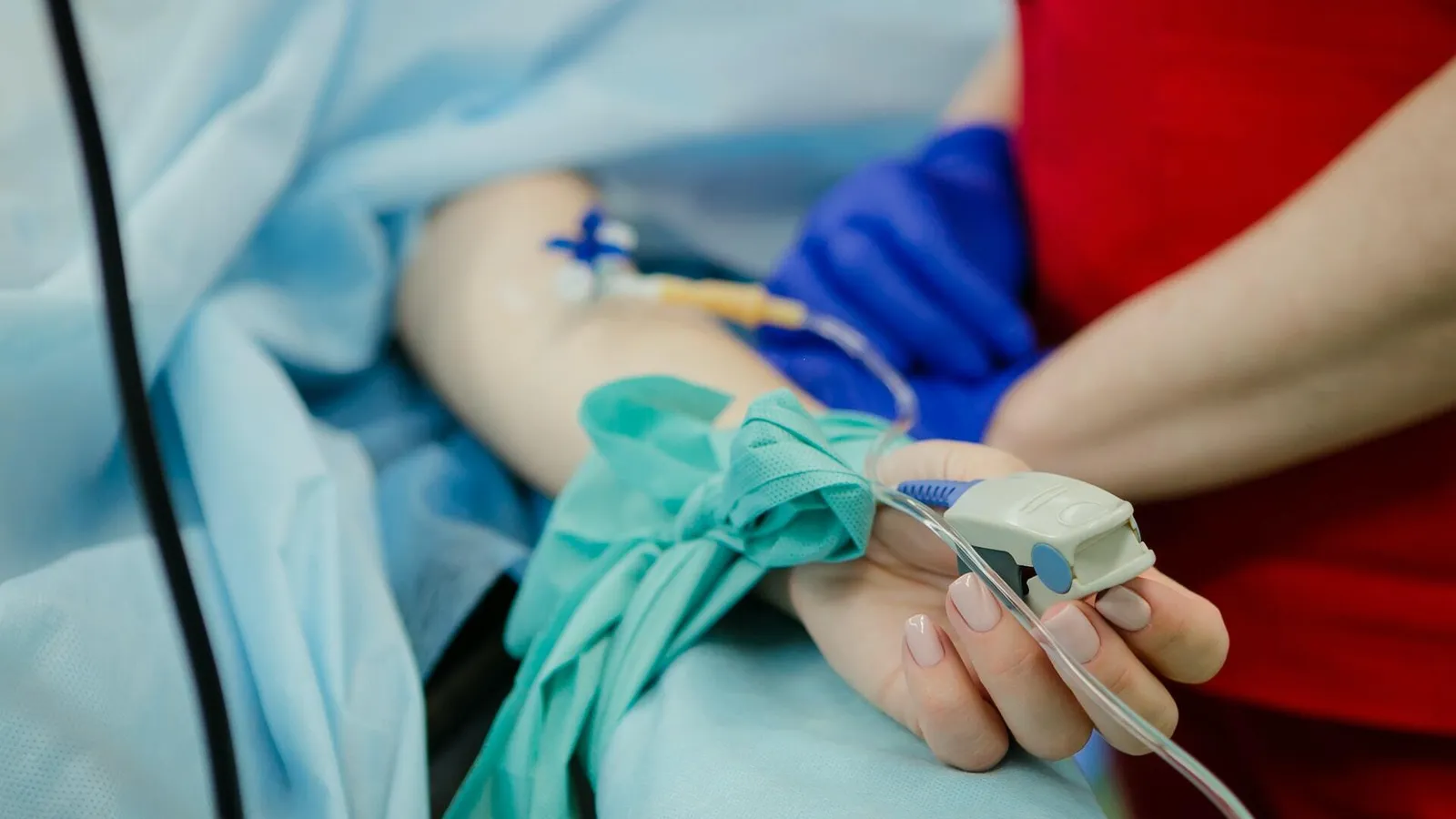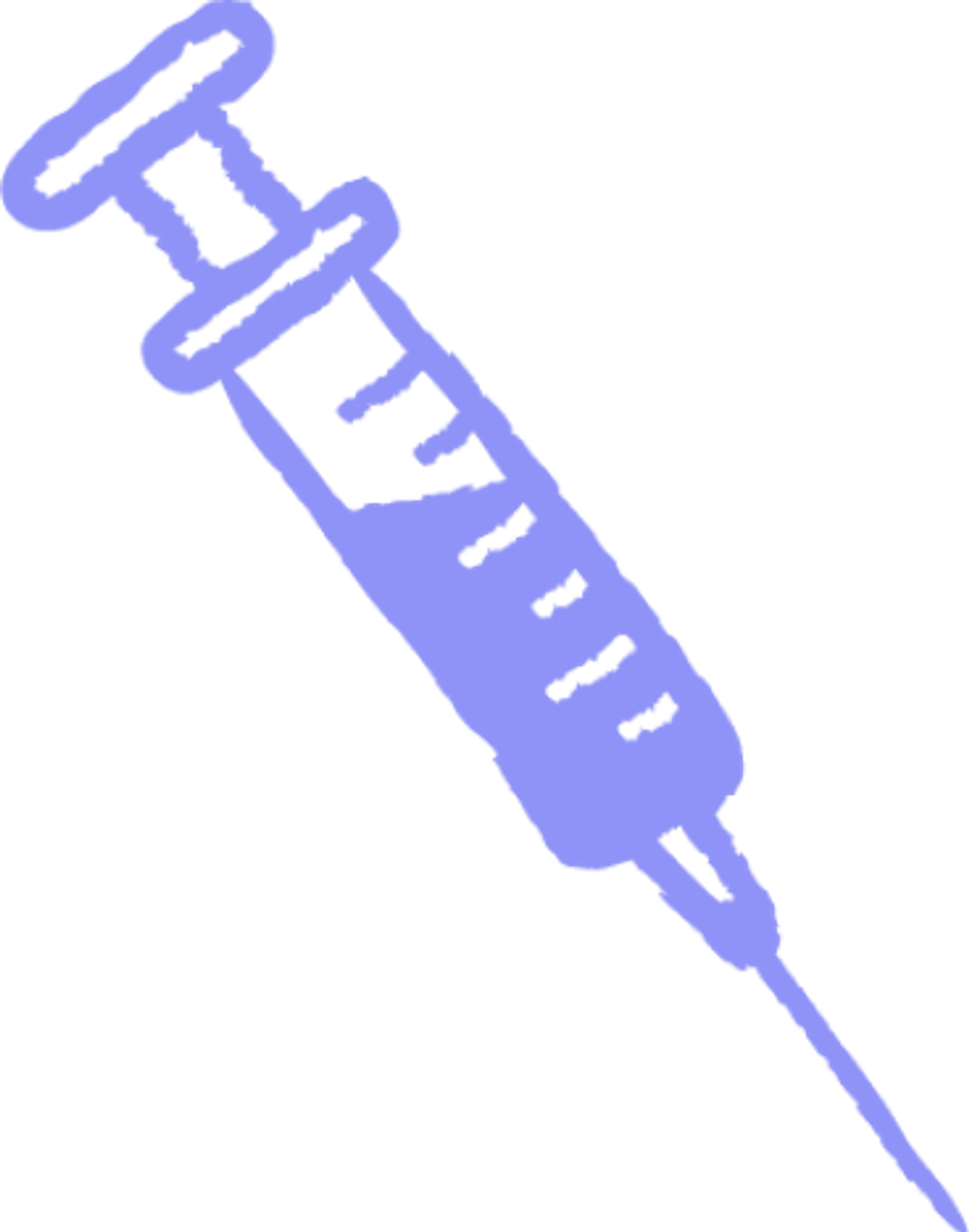Plasma 101
Who: Eligible donors between 18 and 63 can earn up to $560 a month in NY and up to $770 a month in FL.
What: Plasma is the yellow part of your blood that replenishes naturally.
Where: Queens, Brooklyn, The Bronx (NY), and Ft. Pierce (FL).
Why: Get paid to donate and help treat bleeding disorders, immune deficiencies, and more.
When: No appointment needed—walk in anytime before closing.
What Are Some Side Effects When Donating Plasma?

What Are Some Side Effects When Donating Plasma?
The plasma donation process involves an invasive procedure where your skin is pierced with an IV needle and cannula to draw blood from your vein before removing the plasma and having the blood cells and platelets reintroduced to your bloodstream.
Although it’s only a minor procedure, it’s not without some side effects. What donating plasma side effects can you expect and anticipate on your visit? And how can you soothe and treat them?
Plasma Donation Side Effects
These common side effects are often experienced immediately after a donation and can be remedied easily.
Dizziness
Collecting plasma removes some of your body’s essential fluid, salts, and nutrients. This can temporarily disturb your electrolyte balance and cause dizziness and faintness. At most donation centers, donors are encouraged to sit, rest, drink some water, and eat a snack before they leave.
Eating something sugary can help to stop feelings of dizziness. Making sure you prepare for your plasma donation by eating a hearty meal rich in iron and protein is also a good way to reduce the likelihood of dizziness and maximize the number of times you feel comfortable donating.
If you feel like you are going to faint or vomit, let someone know. They may need to stop the donation process.
Dehydration
Plasma is made up of 92% water, so when we harvest your plasma, you will become dehydrated. It’s important to drink water regularly throughout the day to help your body stay hydrated. Make sure you drink more water just before and after your donation appointment, too.
Adults are recommended to drink nine to 13 cups of water every day and two extra cups of water right before their appointment.
Does donating plasma make you tired?
When plasma is collected, it means nutrients and salts are depleted from the body. Fatigue (tiredness) is a common side effect while your body works to keep functioning normally until it can completely replenish the lost plasma.
Feeling a bit tired after your donation is normal, though should pass in a few days or even a few hours after donating. This is one of the reasons it’s important to stay hydrated before and after a plasma donation and eat a healthy, well-balanced diet.
If you still feel very tired 2-3 days after donating plasma it might be a good idea to see your doctor. It’s likely there’s nothing to worry about, but it’s important to check for low blood sugar, anemia, or another underlying health condition, as this could put you at risk if you continue to donate.
We always perform health checks prior to plasma collection as required by the FDA. This is to ensure there are no health issues that would put you at risk. So don’t worry. You’ll only donate plasma if it’s safe to do so.
Fatigue is one of the reasons we recommend not going further than 50 miles from home for your donation appointment. Thankfully we have a network of Olgma Life donation centers across New York City and Florida so that you can find one close to you.
There are plasma donation centers all across the United States. We guarantee you’ll never be far from one. Though, not all donation centers are the same. Find out what to know about donation centers in our article Are All Plasma Donation Centers the Same?
Bruising after Plasma Donation
When the needle pierces your skin and vein, it’s possible some blood can flow out of your vein and into the surrounding tissues, even if your phlebotomist is very skilled. This bruising can remain on the skin for a few days and be tender to touch or pressure.
Bruising may also be more apparent in individuals with more sensitive skin and veins and those with paler complexions.
There’s no real way to avoid getting a bruise during plasma donation or speed up the healing process, but a bruise shouldn’t affect your day-to-day life and can be covered with a sleeve until it’s healed completely. You can try applying firm pressure after the needle has been removed and avoiding strenuous lifting for a few hours after donating to minimize the look of a bruise.
Bruising is common and normal, but look out for these signs that might mean a trip to your healthcare provider.
If a bruise doesn’t start to heal after a week or so.
If pain at the bruising site gets worse or doesn’t go away.
If the area shows any signs of infection (redness, swelling, feeling hot and/or hard, evidence of pus, pain, or a foul smell).
If you notice a hematoma developing at the site (a large collection of blood usually presented as a firm, dark lump)
If you generally feel unwell or are still worried about the bruise after several days.
Rare Side Effects
These side effects aren’t common but could still happen (though on very rare occasions), so it’s a good idea to know what they are.
Infection
Risk of infection is always present when the skin is broken. The protecting barrier is compromised, leaving an opening through which bacteria can pass. The needle used to pierce the skin could, theoretically, harbor bacteria too.
The chance of an infection is always very low when phlebotomy is performed in a controlled setting because trained professionals follow very strict hygiene protocols. Regardless, it’s still a good idea to monitor the area where your blood was taken for signs of infection and visit a healthcare professional if they arise:
Redness of the skin
Swelling or a ‘hard’ feeling when the area is pressed
Unusual heat in the area when touched
Visible pus under the skin or breaking through
Find out if you can donate plasma after having had Covid-19 and where your plasma goes after we collect it.
Arterial Puncture
When your whole blood is collected to separate the plasma, the technician will puncture a vein in your arm with a needle and draw the blood. An arterial puncture occurs when the technician accidentally punctures an artery instead of a vein.
Arteries have a much higher pressure than veins and can cause heavy bleeding into your arm tissue and surrounding area. When this happens, the technician can usually fix the problem by withdrawing the needly and applying pressure to the puncture site for around 10 minutes.
Citrate Reaction
When your whole blood has been collected, a liquid called citrate is then added before the process of apheresis. Citrate is an anticoagulant, and it is used to prevent clotting so that your whole blood can be effectively separated into its components.
When your blood cells and platelets are added back to your bloodstream, some citrate will also enter your body. Citrate reaction is a very rare but serious condition whereby the individual reacts to a temporary reduction in calcium in the body as a result of the citrate.
Signs of citrate reaction should be treated with urgent medical attention:
Numbness and tingling in lips and extremities
Chills and shivering
Lightheadedness
Pulse changes and shortness of breath
Muscle twitches
Shortness of breath
Citrate reaction might affect your chances of donating. Find out what could exclude you from donating plasma.
Nerve Irritation/Injury
There is a small chance that the needle used to pierce your vein and collect blood could touch a nerve when it is inserted or withdrawn. This could result in a sharp pain or tingling sensation, either at the puncture site or in the surrounding area.
Nerve irritation or reaction is generally only short-term. The person collecting your blood may apply a cold compress to soothe the sensation.
Next-Day Side Effects of Donating Plasma
In the immediate time after your donation, some short-term effects are quite common. Most of the time, these are very easy to treat. Look for these immediate side effects and see if any apply to you.
Side Effect | How to Avoid It |
Dehydration | Drink water regularly, especially before and after your donation. |
Dizziness | Eat a hearty meal after your donation or have a small snack high in fast-acting carbohydrates, such as a cup of juice. Our donation centers encourage donors to stay for a hot or soft drink after their donation so they can rest and ensure they feel well when they leave. |
Bruising and tenderness | Apply firm pressure to the puncture site on your arm afterward to discourage the chance of bruising, and avoid any exercise or heavy lifting with that arm for a short time afterward. |
Fatigue | Ensure you replenish your body with water and healthy foods afterward. You may also want to have a rest in the center before leaving and take it easy for the rest of the day. |
Low Blood Sugar | Eat a small snack of fast-acting carbohydrates such as juice, fruit, or glucose tablets. Follow with a balanced meal. Ensure you do not feel dizzy before leaving the center. |
Infection | Keep the needle insertion site clean and watch for any signs of infection (redness, swelling, feeling hot and/or hard, evidence of pus, pain, or a foul smell). |
Nerve Irritation | Apply a cool compress to the area to soothe symptoms until they go away. |
Citrate Reaction | Donors can develop a citrate reaction, but this is rare. Keep an eye on yourself following your donation for the signs of a citrate reaction we mentioned above. If you’ve concerned you have it, seek medical attention immediately. |
Long-Term Side Effects of Donating Plasma Regularly
If you donate plasma regularly over a long period of time, you may notice some different side effects arise.
Side Effect | How to Manage |
Scarring | Scarring shouldn’t affect your health. It’s possible that recurrent needlesticks can produce scarring over time, but this is not very likely as the needles used are very small, and procedures are carried out by trained individuals. |
Immunoglobin Depletion | It’s possible that immunoglobulin can delete over time in some people who regularly donate for a long period. This can be managed by maintaining a healthy lifestyle. Your medical checks before each donation will ensure your immunoglobulin levels are safe enough for you to donate. |
Anemia | Loss of red blood cells is much less common in plasma donation than in whole blood, but it is still possible. Following a healthy diet rich in iron, protein, and other nutrients is important. Your hematocrit levels will always be checked before donating, too, so we can be sure it’s safe for you to donate. |
Remember that certain rules are in place in plasma donation centers designed to protect donors from short- and long-term effects. For example, we conduct a medical screening before each plasma donation which allows us to check for certain conditions and ensure
At Olgam Life, we help wonderful people like you donate plasma. We build strong relationships with the communities we work in and always look for more friendly staff. Read our frequently asked questions about plasma donation, or get in touch with us.
















